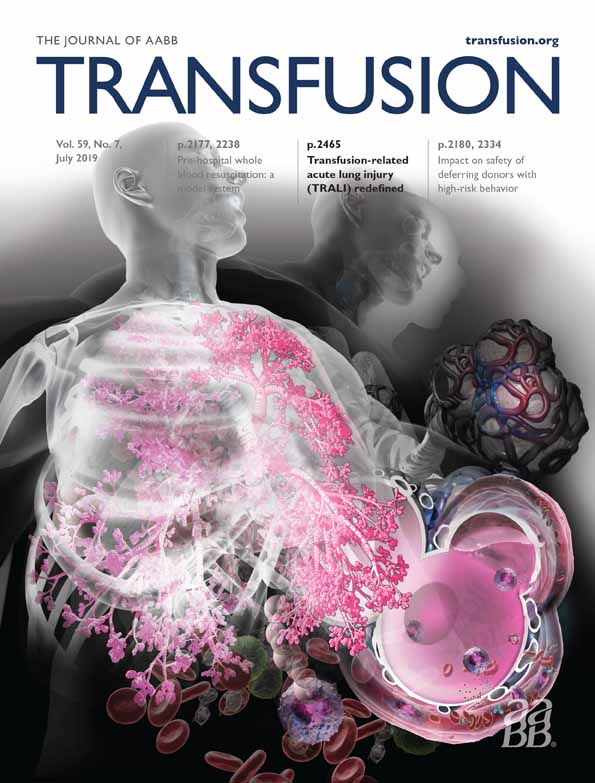Integrative genome analysis identified the KANNO blood group antigen as prion protein
Abstract
BACKGROUND
Anti-KANNO, a broadly reactive RBC alloantibody, is found among some Japanese pregnant women, but the genetic basis of the corresponding antigen remains unclear.
STUDY DESIGN AND METHODS
We integrated a statistical approach to identify the coding gene for KANNO antigen by conducting a genome-wide association study (GWAS) on four KANNO-negative individuals and 415 healthy Japanese. We also applied whole-exome sequencing to them and performed a replication study to confirm the identified genome variation using independent 14 KANNO-negative individuals. A monoclonal antibody-specific immobilization of erythrocyte antigens (MAIEA) assay was used to locate KANNO antigen on RBC-specific membrane protein. In vivo and in vitro binding assays of anti-KANNO were further applied to the cells expressing a candidate protein.
RESULTS
The GWAS revealed a genome-wide significant association of chromosome 20p13 locus (p = 2.76E-08; odds ratio > 1000 [95% confidence interval = 48–23,674]). The identified single-nucleotide polymorphism located in an intronic region of the prion protein (PRNP) gene. Whole-exome sequencing revealed a missense variant in the PRNP gene (rs1800014, E219K), which is in linkage disequilibrium with the single-nucleotide polymorphism identified in the GWAS. All 18 KANNO-negative individuals possessed the homozygous genotype of the missense variant. The MAIEA assay using anti-KANNO and mouse antihuman prion protein showed a clear difference between KANNO-positive and KANNO-negative RBCs. Anti-KANNO showed direct binding to CHO-K1 cells expressing wild-type PRNP but not to those expressing E219K PRNP.
CONCLUSION
We first identified the coding gene of the high-frequency antigen KANNO located in PRNP and the missense variation (E219K) that affects the seropositivity of the KANNO antigen, which were confirmed by PRNP overexpressed cells.
CONFLICT OF INTEREST
The authors have disclosed no conflicts of interest.




